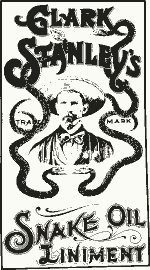 Last week I received an email from a reputable indie publishing blogger inviting me to a webinar where I could learn how to double my sales from a successful indie author. It sounded too good to be true, but since this was a reputable indie publishing blogger, I decided to give it a shot.
Last week I received an email from a reputable indie publishing blogger inviting me to a webinar where I could learn how to double my sales from a successful indie author. It sounded too good to be true, but since this was a reputable indie publishing blogger, I decided to give it a shot.
The webinar was packed full of writers, and many went around introducing themselves and where they were from. Judging from the introductions, many were either new writers working on their first book or veterans struggling with limited sales of their first book or two. You can put me in the latter category.
The successful indie author hosted the webinar and (surprise) primarily spent his time plugging his new book, which featured ways that indie authors everywhere could double their sales. He started off relating what he did and gave case studies demonstrating how so-and-so applied the techniques from the book and saw their sales blossom. But every example he gave involved a non-fiction author. And our successful host was a non-fiction author as well. I complained in the audience chat that all we were seeing were non-fiction examples. Anyone with a clue about publishing knows that selling non-fiction is completely different from selling fiction. Several other attendees agreed with me.
People buy non-fiction for a very specific purpose, and it can be anything. You can look up books on shade gardening in New England, building websites for mobile devices, Theodore Roosevelt's childhood years at Oyster Bay, or meatball recipes. People buy fiction just to be entertained, but the specifics are limited. It typically isn't anything more than "alien invasion sci-fi", assuming that "sci-fi" isn't as far down the genre tree as one can go. Nobody looks for "alien invaders from Barnard's Star with trilateral symmetry who choose Africa as ground zero". And even if they wanted to, they couldn't as that level of detail in sub-categories doesn't exist.
I'm not sure how much of the webinar I can relate here without trampling on someone's copyright, but I'll try anyway. One major suggestion was to convert readers into fans. The thinking was to sell product to the fans like how projects on Kickstarter offer tiers of rewards to people who donate more money to their projects. It's an interesting idea, provided you already have a readership, and someone willing to spend $50 on your 3D printed figurine of the half-elf heroine from your epic fantasy.
Fortunately for successful non-fiction indie author, he already had a readership when he applied this method. I consider that an unfair advantage. Indie fiction authors want to know what they can do to make their first paranormal romance novel, for example, stand out from the thousands of other paranormal romance novels. How does one build that initial readership?
The suggestions for fiction authors were limited. We're supposed to give away short stories for free on our website, and we should blog about the writing process.
That was it.
Don't sell your short stories to zines, give them away for free on your website. But the real kicker was: Blog it and they will come. Because people looking for books to read really want to just read the random thoughts of some random person.
Now blogging has been incredibly successful for some people, though they tend to be journalists and pundits. John Scalzi sold his first book to Tor because one of its editors read his blog (He didn't even have to bother with the indie scene). But how many of these success stories are out there? And why was that gentleman reading that blog in the first place? There has to be some sort of connection to the blogger and his/her readership. But if I had a dollar for every blogger that fizzled out, or never got past a dozen readers (like my old blog), I could pay off my mortgage (and then some).
I don't have an answer for you. I'm certainly not a best-selling author. I'd say keep trying your hand at social media. Make sure your work has been edited and hire a professional to create your cover. Whether you view it as art or product, it's important that you produce your best work. One option to try is to keep writing. Maybe if you have enough books out there, someone will stumble into one and it'll start a chain reaction.
Anyone who's found a technique that works should feel free to share it in the comments. Please, share it. Though we've hoped and tried, book reviews aren't enough to help your fellow indie authors (there might be a couple exceptions). We don't mind you plugging your success, so long as you don't try to sell us a book claiming that it will make us successful, cure baldness, have us waking up every day feeling rejuvenated, or help us lose ten pounds without dieting or exercise.
\_/
DED
No comments:
Post a Comment